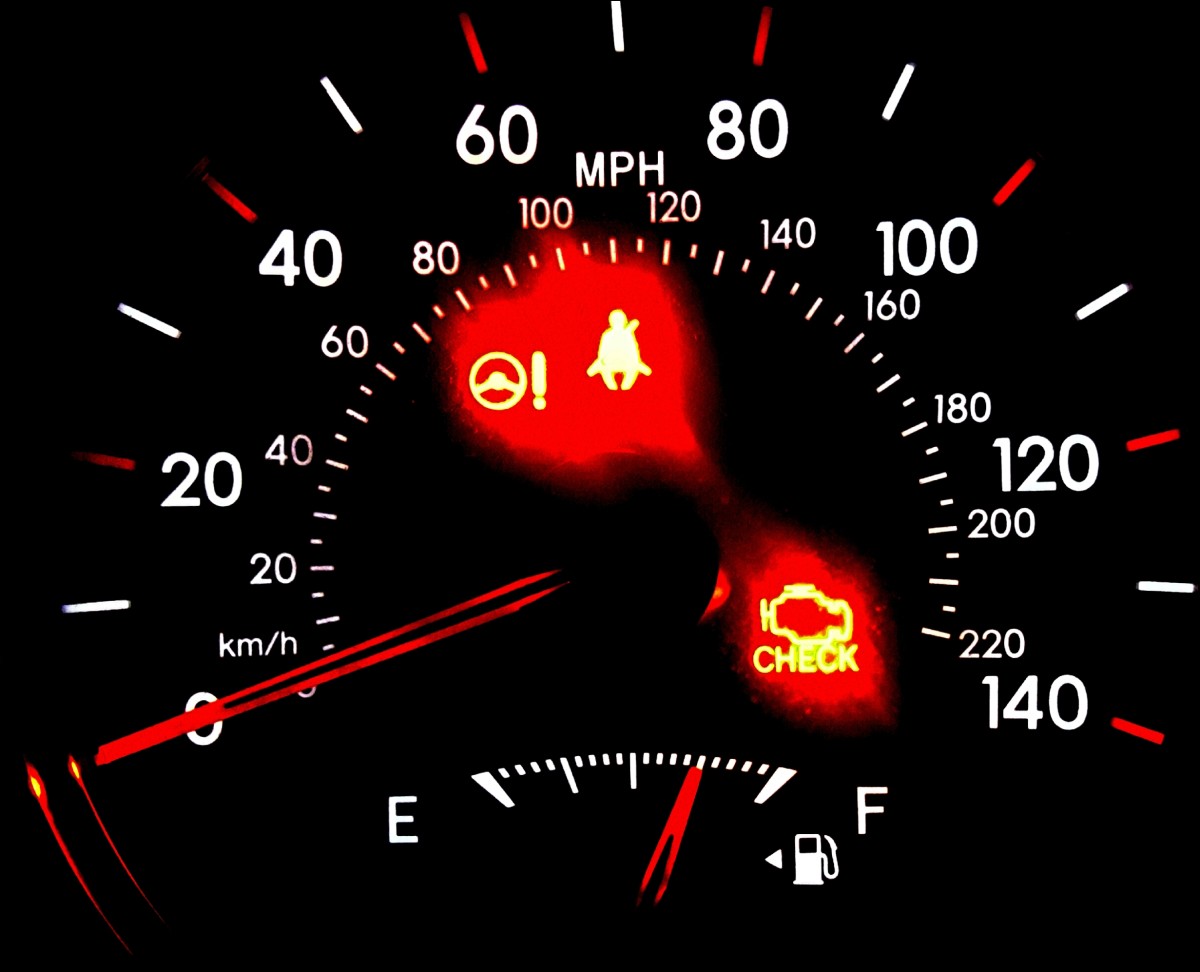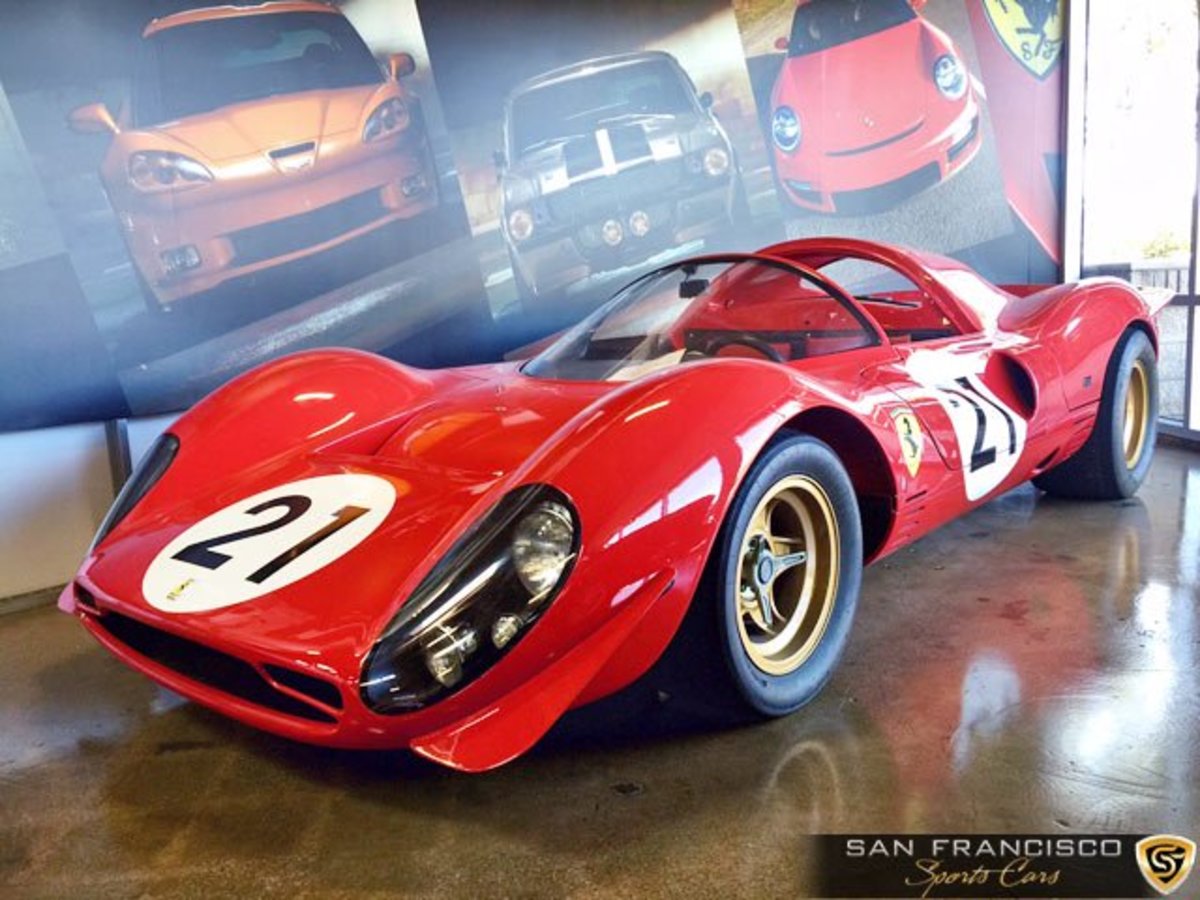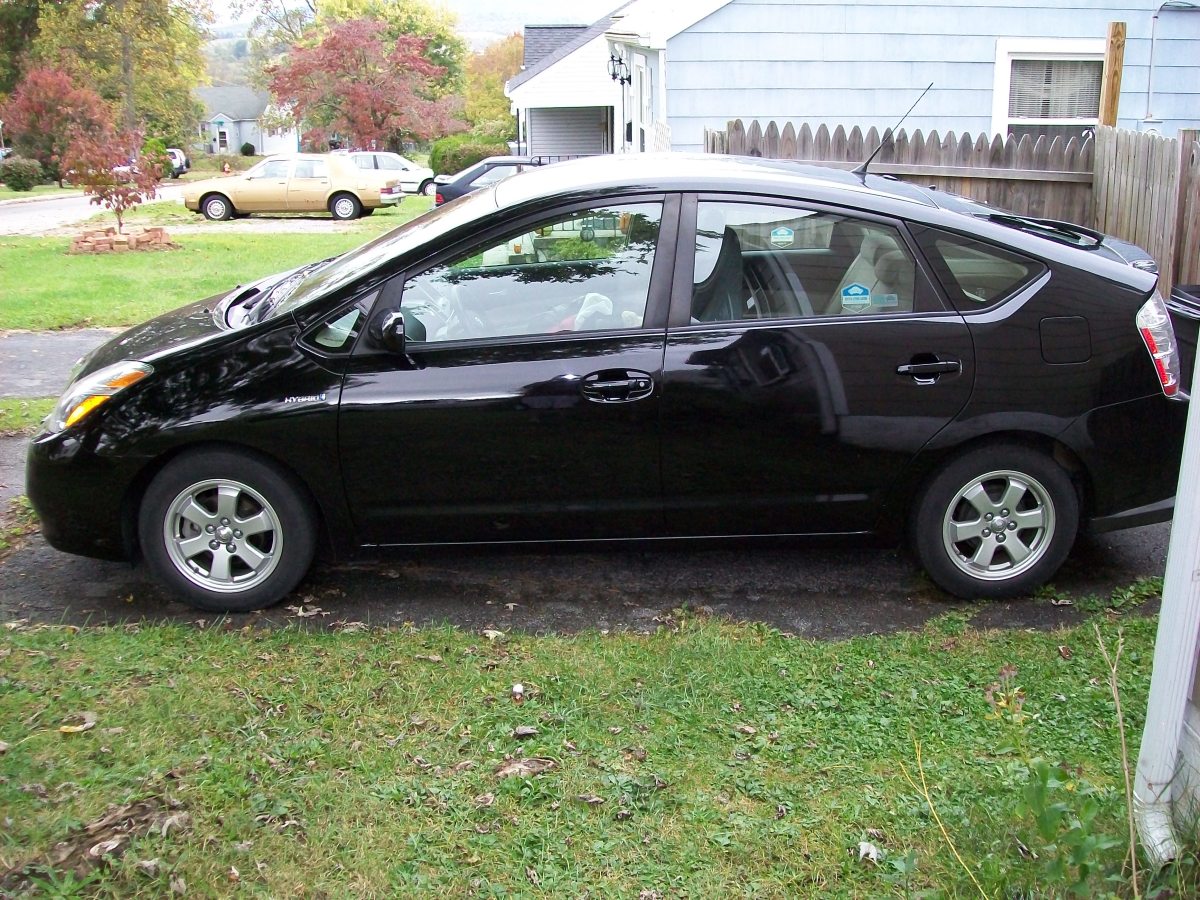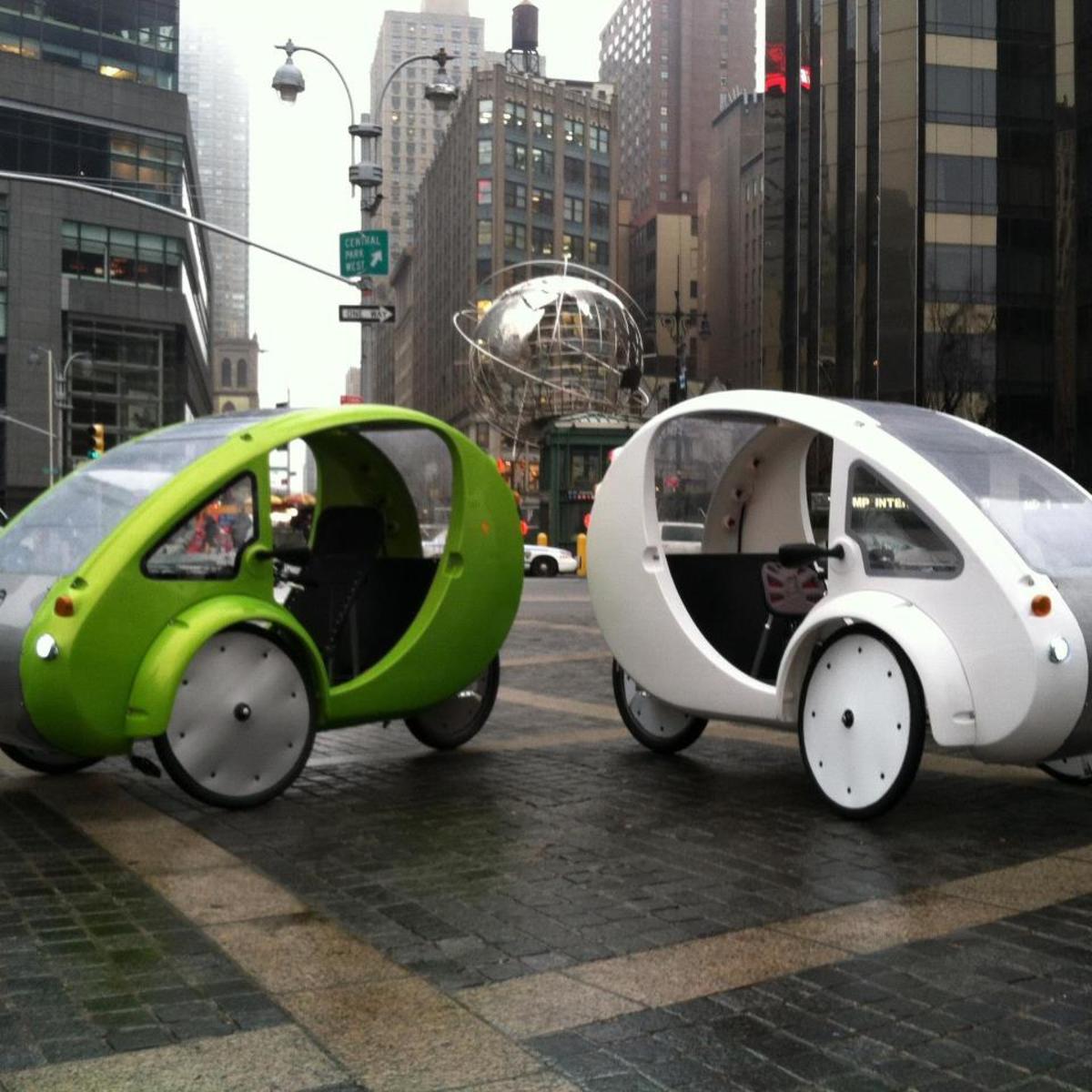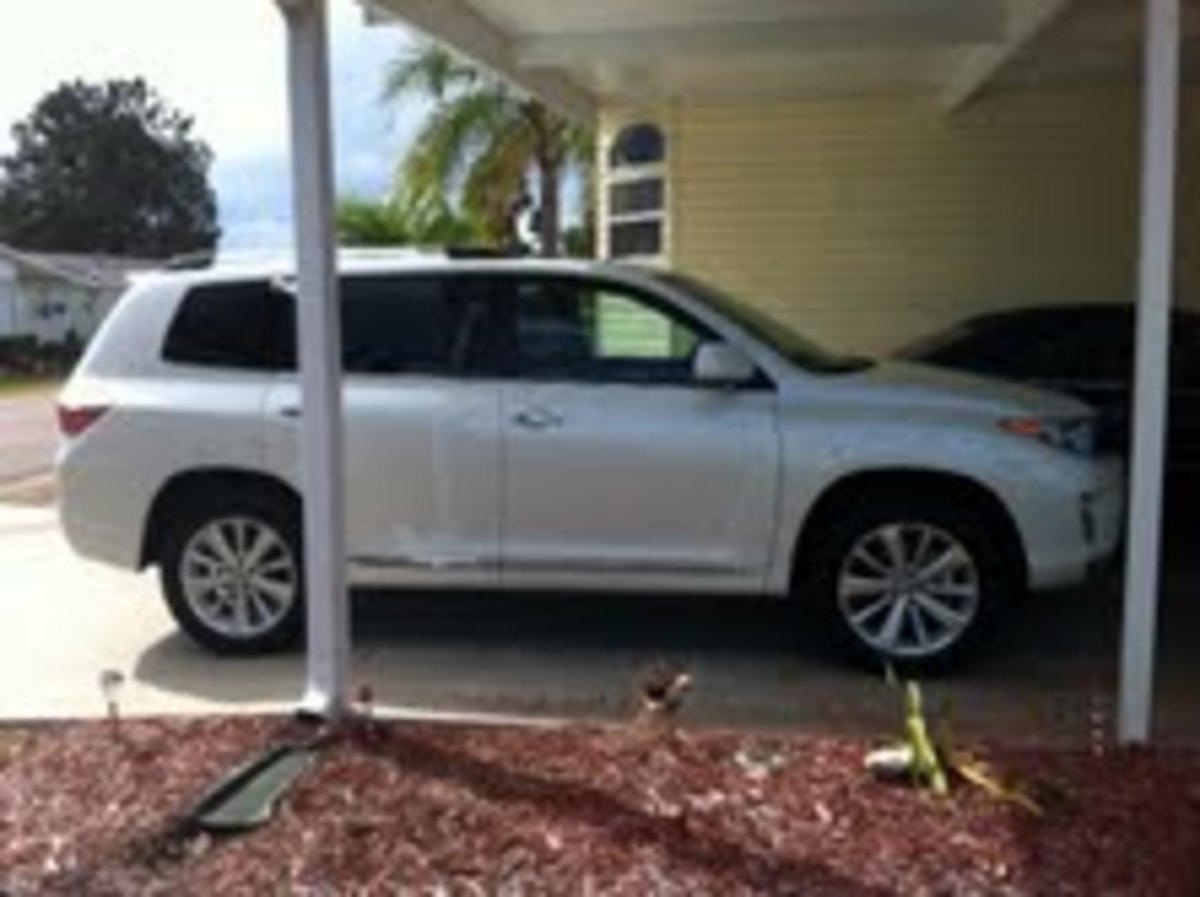Hybrid Car: Facts and Tips You Should Know Before Buying
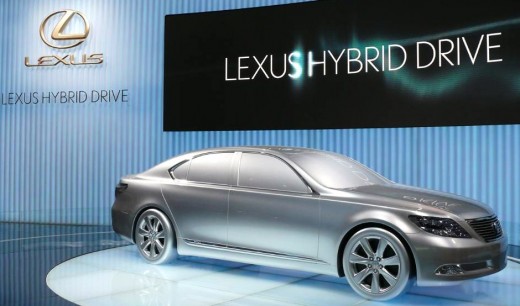
Hybrid Cars Attributes
- Some hybrid cars can get more than 50 MPG in a city driving cycle=Fuel-efficient.
- Hybrid cars emit about 90 % fewer pollutants than regular cars=Eco-friendly.
- Hybrid cars have a lower depreciation rate than regular cars=A good investment (In some cases).
- Most buyers are eligible for a tax rebate or federal tax credit.
- The rechargeable battery pack is guaranteed by the manufacturers for up to 8 years.
- For reliability, hybrid cars can run like new with more than 250,000 miles on them.
- Hybrid cars retain excellent retail value.
Hybrid Cars
Hybrid cars as you might already know are the cars that combine two propulsion engines; a standard gas-engine and one or more than one electric motor. Meaning that they have two propulsion technologies. Maybe it's an attempt to reduce our fuel consumption by making the traditional combustion-engine spend less time running while improving the performance thanks to electric propulsion assistance. All that, by combining two cars in one. Meaning, regular fuel-engine car + electric car = Hybrid car.
Although hybrid cars are the best option alongside electric cars for green drivers, they are still not suitable for everyone. Yes, you are going to save on gas consumption and your hybrid vehicle will emit fewer pollutants than the standard gasoline-engine vehicle, but only the people who drive in certain conditions will be eligible for the quick savings on fuel consumption.
Read on to get a clearer idea about hybrid cars regarding the myths vs. facts and pros vs. cons of owning a hybrid car so if you find it the best fit for you, read the hybrid buying tips section too. On the other hand, if you find yourself not eligible for owning a hybrid car, you might as well choose standard gasoline- or diesel-engine vehicle that gets good mileage and can save you on fuel consumption.
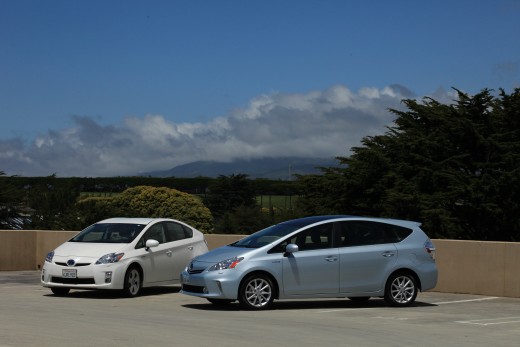
Hybrid Car Sales
Hybrid cars are gradually becoming more popular with more people are turning to buy cars that are considered eco-friendly and good at fuel efficiency.
The Toyota Prius is the best selling hybrid vehicle with cumulative global sales of over 3 million units by June 2013. These sales indicate why the major manufacturers are showing an interest in producing hybrids.
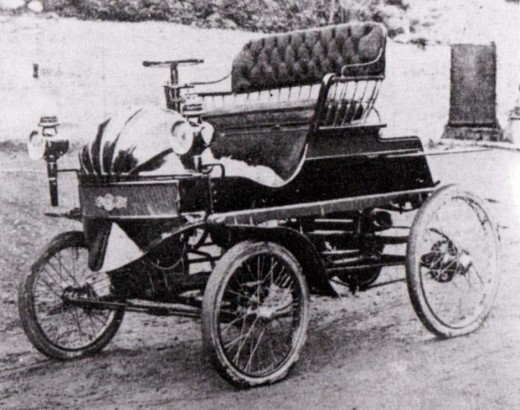
First Hybrid Car
- The first hybrid vehicle was made by Ferdinand Porsche the founder of the Porsche company.
- The first hybrid car was called the "Mixte".
Hybrid Car History
Hybrid car technology is not a new thing although some people still think that it's a new technology. Hybrid technology was invented more than a century ago when a man called Ferdinand Porsche made the first hybrid vehicle and that was 1902. If that name rings a bell, it should because Ferdinand Porsche was the founder of the very famous "Porsche company". That first hybrid car was called the "Mixte" and it was referred to as "Semper Vivus" meaning, always alive.
Over the past century, hybrid technology was imperceptibly used in several applications such as locomotives, submarines, mining trucks, and mopeds. Though the hybrid technology was devised more than a century ago and the first hybrid vehicle was made in 1902, hybrid technology found its way back to the cars when the Toyota company rolled out its Toyota Prius hybrid car in Japan 1997.
Afterward, since the hybrid cars hit the market in the U.S, the major automakers such as Honda, Rolls Royce, Chevrolet, and Ferrari have or have announced a plan for producing hybrid vehicles.
Myths vs. Facts about Hybrid vehicles
Due to the confusion that still surrounds hybrid cars, it's very important to separate the myths or misconceptions from the facts about them. So you can make a well-informed decision regarding whether to buy them or not.
- Myth: Hybrid cars have no power.
- Fact: Now, advancements in technology with advanced electronic mechanisms allow most of the attributes of the high-powered cars to be applied in hybrid cars as well. The Lexus GS 450 H, Fisker Karma Hybrid, BMW GM two-mode system are known for their high-performance. Being fuel efficiency does not mean that hybrid cars are underpowered.
- Myth: The rechargeable battery of the hybrid cars lasts only two years.
- Fact: The manufacturers of hybrid cars give about an 8-year warranty on the rechargeable batteries of hybrid cars. For example, Toyota gives 8 years/100,000 miles and Honda gives 8 years/80,000 miles on the battery pack and the hybrid system. Also, the battery could exceed the warranty period. There is data that states that the battery of hybrids can last inordinately for a long time even under duress like in New York Taxis.
- Myth: Hybrid cars need to be plugged in every night by using wall sockets or fuel cells or by going to any charging station.
- Fact: Unlike all-electric cars and plug-in hybrid cars, most hybrid cars use a regenerative charging system. Meaning, you do not need to look for a charging station to plug-in your car. The hybrid vehicle is automatically recharged every time you push on the brake pedal, the vehicle is going down a slope or downhill or when you are driving at a high steady speed such as driving on motorways. Other than plug-in hybrids, Hybrid cars are self-propelled. Therefore, all you have to do is to drive and the car will look after itself.
- Myth: If I run out of gas I can keep driving on the electric motor.
- Fact: As mentioned, most hybrid cars use a regenerative charging technology. Hybrid cars have an electric motor that is powered by a battery pack (The rechargeable battery) but they are still using a conventional gas-combustion engine that depending on programming, sends a portion of its energy (An electric energy) to recharge the battery pack and power the electric motor. That means you must have gas in the tank to keep recharging the vehicle.
- Myth: Hybrid cars are cost-prohibitive.
- Fact: Hybrid car's price tag starts at about $22,000 and some hybrids can cost as much as $100,000 or more. However, when you think of the prices of the traditional gas-powered cars, you will find that some cars might cost you more than $500,000 such as Ferrari and the other famous brands. Also, when factoring in the tax rebates offered by the government, you might find that hybrid vehicle are not that much expensive.
- Myth: Hybrid cars are the cars of Bleeding Heart Liberals.
- Fact: Although hybrids were initially preferred by the liberal-minded and left-leaning people, conservative drivers also have jumped on the hybrid bandwagon after they realized the benefits of those cars.
- Myth: Hybrid cars can get more than 70 MPG.
- Fact: Hybrids can get up to 50 MPG. Nevertheless, some higher performance hybrids get up to 60 MPG.
- Myth: If you buy a hybrid car, you will pay half the value for replacing the battery.
- Fact: As mentioned, Hybrids usually run like new even when they have 250,000 miles on them. That indicates the reliability and durability of those cars. Therefore, there is no need to worry about replacing the battery, because unlike the traditional battery of the regular cars, the battery pack of hybrids is typically guaranteed for up to 8 years by the manufacturers.
- Myth: Hybrid cars may leave you stranded in the middle of the road.
- Fact: As noted above, unlike electric cars and plug-in hybrids, most hybrid cars have a regenerative braking or regenerative recharging feature. So the vehicle will not leave you stranded as long as you have fuel in the tank.
- Myth: hybrid cars are dangerous in the case of an accident.
- Fact: There is data that states that hybrids are safe and reliable. The Powertrain and hybrid components are marked with bright colors to warn the other drivers and emergency personnel or workers of their existence.

General Facts about Hybrid Cars
- J.D powers rate the 2010 Toyota Camry hybrid 10,0 out of 10. This score is based on 51 cars over 3 years.
- Facts from 60 car Prius fleet tests showed that hybrid cars have higher preventive maintenance costs and lower non-scheduled maintenance costs than their nonhybrid counterparts.
- Facts from Consumer Reports give the hybrid models, high rating. For example, Toyota Prius, Toyota Camry, Nissan Altima, Mercury Milan, and Ford Fusion have a high ranking.
- The hybrid models have been tested for 10 years of durability and battery life. The results indicate that there is no need to replace the battery pack within the warranty period.
- Some models are used as taxi cabs because of their reliability.
- When you drive on the highway at a high steady speed the hybrid will run like any traditional combustion-engine vehicle, however, when you drive into town with lots of stops and start driving, the gas engine will shut down and the car will run on the battery pack. The transition between the two driving systems is seamless.
- Most hybrid drivers have logged more than 100,000 miles with no problems.
- Most of the battery pack that the hybrid vehicles use are Ni-MH chemistry or Nickel Metal Hydride Battery. Maybe shortly that will change as Li-Ion chemistry takes over.
- Toyota claims that its Toyota Prius can travel up to 600 miles on a full tank.
- Newer generations can perform just as well as traditional fuel-powered cars. The Lexus GS 450 H boasts about 300 horsepower and performs well in 0 to 60 road tests. The Fisker Karma also performs well in 0 to 60 road tests.
- High performance or heavy hauling hybrids typically have more than one electric motor.
- As the emission laws differ from state to state, most automakers are manufacturing hybrids that meet these laws even in the toughest states.
Facts about the Classes of Hybrid Vehicles
Most hybrids use the instant torque of their electric motor using power from the battery pack to accelerate from stops and add ICE (Internal Combustion Engine) power when needed depending on programming. Hybrids run on electric motor power only when they are at low speeds.
Most hybrids have regenerative braking or regenerative charging. When the driver pushes on the brake pedal, a regenerative circuit turns the electric motor into a generator. The generator slows the car and puts the energy back into the battery pack.
As mentioned, hybrids have two Powertrain; the combustion-engine and one electric motor or more than one. How these power plants are configured and matched to the rest of the Powertrain determines the classification.
Main Classes:
- Full Hybrid: Toyota Prius and Ford Fusion are full hybrids. In these cars, the electric motor is the main power plant for the vehicle. The electric motor is used at lower speeds, but under high speed and load the ICE kicks in. The electric motor is used as a generator during braking to slow the car and to put the energy back in the battery pack (What is so-called the regenerative charging).
- Mild Hybrid: Hyundai Accent hybrid and Saturn Vue Green Line are mild hybrids. In these cars, the ICE is the main power plant. These cars use the regenerative charging feature as well.
- Extended Range Electric Hybrid: These cars use a small ICE to power a generator that in turn recharges the battery pack and then powers the electric motor.
Sub Classes:
- Parallel Hybrid: Under load and when a lot of power needed, both of the gas-engine and the electric motor combine to propel the vehicle. On the other hand, when low power is needed, only the electric motor propels the vehicle. Bear in mind that the computer system controls the aforesaid operation.
- Series Hybrid: The electric drive motor only propels this hybrid. That electric drive motor can be powered in two ways; by the gas-engine and the battery pack. The battery pack is recharged by plugging it in.
- Powersplit Hybrid: These hybrids use both parallel and series configurations. By using the power-split system, the electric motor of the hybrid car can provide high torque when it is most efficient, such as at startup.
- PHEV: The Chevy Volt and Fisker Karma are 2 examples of new PHEVs. PHEV stands for Plug-in Hybrid Electric Vehicle. This hybrid operates as a plug-in hybrid (Similar to the electric plug-in vehicles) with plug-in rechargeable battery packs accompanied with an onboard gas-combustion-engine for backup power.
Facts on Driving Mode
If you are going to buy a hybrid vehicle, knowing the different driving modes is crucial to get the best gas mileage and to decrease the emission output. Bear in mind that the car dealer or the salesperson may tell you that you will get super high gas mileage, regardless of how you drive, but it may not be the case.
The gas mileage that you will get is depending largely upon the driving mode. There is 4 typical driving mode.
The different driving mode:
- Full stop: When you are at a full stop like at a stop sign or a red traffic light, the combustion-engine usually shuts down and the electric motor is now ready to propel the vehicle if you push on the throttle.
- Initial acceleration from a stop: Most hybrids use the torque of their electric motors to accelerate from a stop using power from the battery pack. In stop and start city driving, this could save you the most fuel. Rapid acceleration is not recommended as it will still hurt your gas mileage as any regular car.
- Braking and deceleration: In this stage, the electric motor is used as a generator to slow the car and to put the kinetic energy of the vehicle as an electric power into the battery pack (The regenerative charging). The hard braking is not recommended.
- Highway driving: If you mostly drive on the highway at higher steady speeds, you will get a minor gas mileage, because, at steady high speed, the electric motor is typically not contributing to propelling the car. Bear in mind that some hybrids get a relatively better gas mileage than their non-hybrid counterparts on the highway too because they use a continuously variable transmission that allows the engine to operate at optimal RPM while the electric motor can assist in acceleration and passing.
Pros and Cons of Owning a Hybrid Car
Pros:
- The extended warranty covers the battery pack and most of the power train components for a considerably longer time than they would on standard vehicles. Usually, you get up to an 8-year warranty as noted above.
- As hybrid car purchase is encouraged by some governments like the U.S, there are rebates and incentives, such as tax rebates or deduction offered by those governments.
- If you drive in a big congested city like London, you will be eligible for taking advantage of the "Greener Vehicle Discount" which could save you a lot of money.
- If you drive with lots of stop-start driving mode, you can get 50% to 70% better gas mileage, but you must check the specific model that you are going to buy to determine how much you are going to save.
- If you drive in a city with lots of stops and start driving mode, you will see a considerable saving on gas consumption. Because in the big congested city, the hybrid will run on battery power more, and braking during stop and start is likely captured and reused.
- You can choose from up to 30 models depending on your preferences.
- In a few cases, you can find hybrid SUV cars that qualify for SULEV (Super-Ultra-Low-Emission Vehicle) rating.
- In some states, the hybrid driver can earn the perk of being a single-occupant car in the HOV lane.
- For economy, hybrid cars can provide about 30% or more in fuel savings.
- When buying a hybrid vehicle, you are getting a highly-engineered and refined engine, generator, electric motor, transmission, and computer system that controls the aforesaid components.
- Some hybrids run only on battery pack without using gas at all in the city at lower speeds about 40 miles per hour. Such as the Chevy Volt.
- If for any reason the price of fuel rises (Assuming you are driving in a congested city), you could see considerable savings on fuel consumption.
Cons:
- Hybrids are best for congested city roads or the short daily commute. For highway where you drive at a high steady speed, the car runs like any traditional car (Because the hybrid mostly uses the combustion engine on motorways driving like any standard car). So you won't see much savings like those you can get in congested city roads.
- You are going to pay more for the hybrid technology, because regenerative charging, electric motors, variable transmission, and programming aren't cheap. You will pay about 20-30% for the hybrid version.
- It could take several years to recoup the difference in price that you have paid for the hybrid system.
- Although hybrids are considered eco-friendly due to the far fewer pollutants that they emit, there is still negative press about them.
- The Powertrain and the hybrid system is far more complex than the normal car, This means that if they break down, they may cost more to repair and parts may be more expensive. Besides, it will require factory-trained mechanics to work on hybrid Drivetrain components and computer systems.
Hybrid Car Buying Tips
Buying a hybrid car is similar to buying a regular car. However, you should determine your preferences. If your main goal is to consume less fuel or gas, you can save money buying a used hybrid vehicle or even any standard vehicle that is known for its fuel-efficiency.
The easiest way to find what you want these days is to research online first while making a list or table to save all the cars that you interested in buying. Then, you should get multiple and competitive price quotes to pressure dealers or salespersons to give you a discount.
Top recommended car price quotes websites:
- cars.com
- CarsDirect
- TrueCar
- Edmunds.com
- Yahoo Autos
You should consider checking the prices of the standard version of the hybrid model. Like a hybrid and non-hybrid sister model or a hybrid and non-hybrid close competitor. Doing that will show you how much extra cost you will pay for the hybrid technology.
In times of peak demand, the selling price is more likely to be full MSRP or higher. It's strongly recommended not to buy at peak demand, instead, you should wait until the demand dies down.
Last Word
As you can see from the above facts and tips, it's your own decision whether it's better to buy a hybrid car or not. You may first consider the type of driving that you are doing regularly then you can decide.
This content is accurate and true to the best of the author’s knowledge and is not meant to substitute for formal and individualized advice from a qualified professional.
© 2014 Mohamed Mohamed



